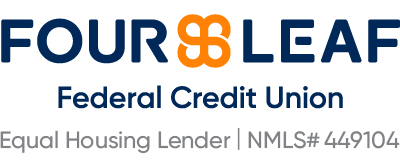You’re our first priority.
Every time.
We believe everyone should be able to make financial decisions with confidence. While we don’t cover every company or financial product on the market, we work hard to share a wide range of offers and objective editorial perspectives.
So how do we make money? Our partners compensate us for advertisements that appear on our site. This compensation helps us provide tools and services - like free credit score access and monitoring. With the exception of mortgage, home equity and other home-lending products or services, partner compensation is one of several factors that may affect which products we highlight and where they appear on our site. Other factors include your credit profile, product availability and proprietary website methodologies.
However, these factors do not influence our editors’ opinions or ratings, which are based on independent research and analysis. Our partners cannot pay us to guarantee favorable reviews. Here is a list of our partners.
Mortgage Interest Rates Forecast
Rates are holding near 6% as markets wait on key economic data.

Some or all of the mortgage lenders featured on our site are advertising partners of NerdWallet, but this does not influence our evaluations, lender star ratings or the order in which lenders are listed on the page. Our opinions are our own. Here is a list of our partners.
How is this page expert verified?
NerdWallet's content is fact-checked for accuracy, timeliness and relevance. It undergoes a thorough review process involving writers and editors to ensure the information is as clear and complete as possible.
Lead Writer & Content Strategist
- Home equity
- first-time home buying
- home warranties
Taylor Getler is a home and mortgages writer for NerdWallet. Her work has been featured in outlets such as MarketWatch, Yahoo Finance, MSN and Nasdaq. Taylor is enthusiastic about financial literacy and helping consumers make smart, informed choices with their money.



Managing Editor
- Mortgage lenders
- homebuying
- home equity
Johanna Arnone helps lead coverage of homeownership and mortgages at NerdWallet. She has more than 15 years' experience in editorial roles, including six years at the helm of Muse, an award-winning science and tech magazine for young readers. She holds a Bachelor of Arts in English literature from Canada's McGill University and a Master of Fine Arts in writing for children and young adults.
Practice making complicated stories easier to understand comes in handy every day as she works to simplify the dizzying steps of buying or selling a home and managing a mortgage. Johanna has also completed coursework in Boston University’s Financial Planning Certificate program. She is based in New Hampshire.
Mortgage rates are basically stuck in neutral right now, hovering around 6% APR for another week. That’s fine news if you’re comfortable with today’s borrowing costs, but a letdown if you were hoping February would bring a noticeable drop. Rates have stayed flat as investors wait on delayed economic reports, including January’s jobs and inflation data, which could shape what the Federal Reserve does at its next meeting. Until those numbers arrive, it’s a lot of waiting and watching.
Behind the scenes, some signals point to a cooling job market. Private-sector hiring slowed sharply in January, which could eventually support lower rates if the Fed decides the economy needs a boost. Looking further ahead, big changes may be coming at the Fed itself: Jerome Powell’s term as chair ends in May, and President Trump’s expected pick to replace him favors deeper rate cuts.
February mortgage rates forecast
For now, most forecasts suggest mortgage rates will hang around 6% through winter — with any real movement more likely later in the spring.
Mortgage loans from our partners

on NBKC
NBKC
4.5
NerdWallet rating
4.5
NerdWallet ratingon NBKC

on New American Funding
New American Funding
4.0
NerdWallet rating
4.0
NerdWallet ratingon New American Funding

on GO Mortgage
GO Mortgage
4.0
NerdWallet rating
4.0
NerdWallet ratingon GO Mortgage

on NBKC
NBKC
5.0
NerdWallet rating
5.0
NerdWallet ratingon NBKC

on New American Funding
New American Funding
4.0
NerdWallet rating
4.0
NerdWallet ratingon New American Funding

on Rate
Rate
4.5
NerdWallet rating
4.5
NerdWallet ratingon Rate

on NBKC
NBKC
5.0
NerdWallet rating
5.0
NerdWallet ratingon NBKC

on Rocket Mortgage
Rocket Mortgage
4.5
NerdWallet rating
4.5
NerdWallet rating3%
on Rocket Mortgage

on New American Funding
New American Funding
4.0
NerdWallet rating
4.0
NerdWallet ratingon New American Funding

on Figure
Figure
4.0
NerdWallet rating
4.0
NerdWallet ratingN/A
on Figure

on New American Funding
New American Funding
5.0
NerdWallet rating
5.0
NerdWallet rating620
on New American Funding

on FourLeaf Federal Credit Union
FourLeaf Federal Credit Union
5.0
NerdWallet rating
5.0
NerdWallet ratingN/A
on FourLeaf Federal Credit Union

on Figure
Figure
4.0
NerdWallet rating
4.0
NerdWallet ratingN/A
on Figure

on New American Funding
New American Funding
5.0
NerdWallet rating
5.0
NerdWallet rating620
on New American Funding

on FourLeaf Federal Credit Union
FourLeaf Federal Credit Union
5.0
NerdWallet rating
5.0
NerdWallet ratingN/A
on FourLeaf Federal Credit Union
Mortgage loans from our partners

on NBKC
NBKC
4.5
NerdWallet rating
4.5
NerdWallet ratingon NBKC

on New American Funding
New American Funding
4.0
NerdWallet rating
4.0
NerdWallet ratingon New American Funding

on GO Mortgage
GO Mortgage
4.0
NerdWallet rating
4.0
NerdWallet ratingon GO Mortgage

on Rocket Mortgage
Rocket Mortgage
4.5
NerdWallet rating
4.5
NerdWallet ratingon Rocket Mortgage

on Veterans United
Veterans United
5.0
NerdWallet rating
5.0
NerdWallet ratingon Veterans United

on NBKC
NBKC
5.0
NerdWallet rating
5.0
NerdWallet ratingon NBKC

on New American Funding
New American Funding
4.0
NerdWallet rating
4.0
NerdWallet ratingon New American Funding

on Rate
Rate
4.5
NerdWallet rating
4.5
NerdWallet ratingon Rate

on Rocket Mortgage
Rocket Mortgage
4.5
NerdWallet rating
4.5
NerdWallet ratingon Rocket Mortgage

on GO Mortgage
GO Mortgage
4.0
NerdWallet rating
4.0
NerdWallet ratingon GO Mortgage

on NBKC
NBKC
5.0
NerdWallet rating
5.0
NerdWallet ratingon NBKC

on Rocket Mortgage
Rocket Mortgage
4.5
NerdWallet rating
4.5
NerdWallet rating3%
on Rocket Mortgage

on New American Funding
New American Funding
4.0
NerdWallet rating
4.0
NerdWallet ratingon New American Funding

on AmeriSave
AmeriSave
4.0
NerdWallet rating
4.0
NerdWallet ratingon AmeriSave

on First Federal Bank
First Federal Bank
4.5
NerdWallet rating
4.5
NerdWallet ratingN/A
on First Federal Bank

on Figure
Figure
4.0
NerdWallet rating
4.0
NerdWallet ratingN/A
on Figure

on New American Funding
New American Funding
5.0
NerdWallet rating
5.0
NerdWallet rating620
on New American Funding

on FourLeaf Federal Credit Union
FourLeaf Federal Credit Union
5.0
NerdWallet rating
5.0
NerdWallet ratingN/A
on FourLeaf Federal Credit Union

on Rate
Rate
4.5
NerdWallet rating
4.5
NerdWallet ratingN/A
on Rate

on AmeriSave
AmeriSave
5.0
NerdWallet rating
5.0
NerdWallet rating640
N/A
on AmeriSave

on Figure
Figure
4.0
NerdWallet rating
4.0
NerdWallet ratingN/A
on Figure

on New American Funding
New American Funding
5.0
NerdWallet rating
5.0
NerdWallet rating620
on New American Funding

on FourLeaf Federal Credit Union
FourLeaf Federal Credit Union
5.0
NerdWallet rating
5.0
NerdWallet ratingN/A
on FourLeaf Federal Credit Union

on NBKC
NBKC
4.0
NerdWallet rating
4.0
NerdWallet ratingon NBKC

on Rate
Rate
4.5
NerdWallet rating
4.5
NerdWallet ratingN/A
on Rate

